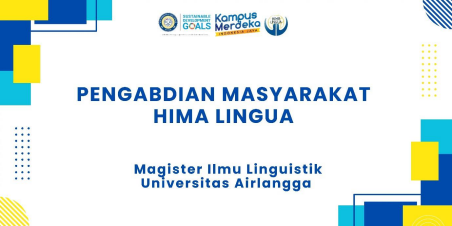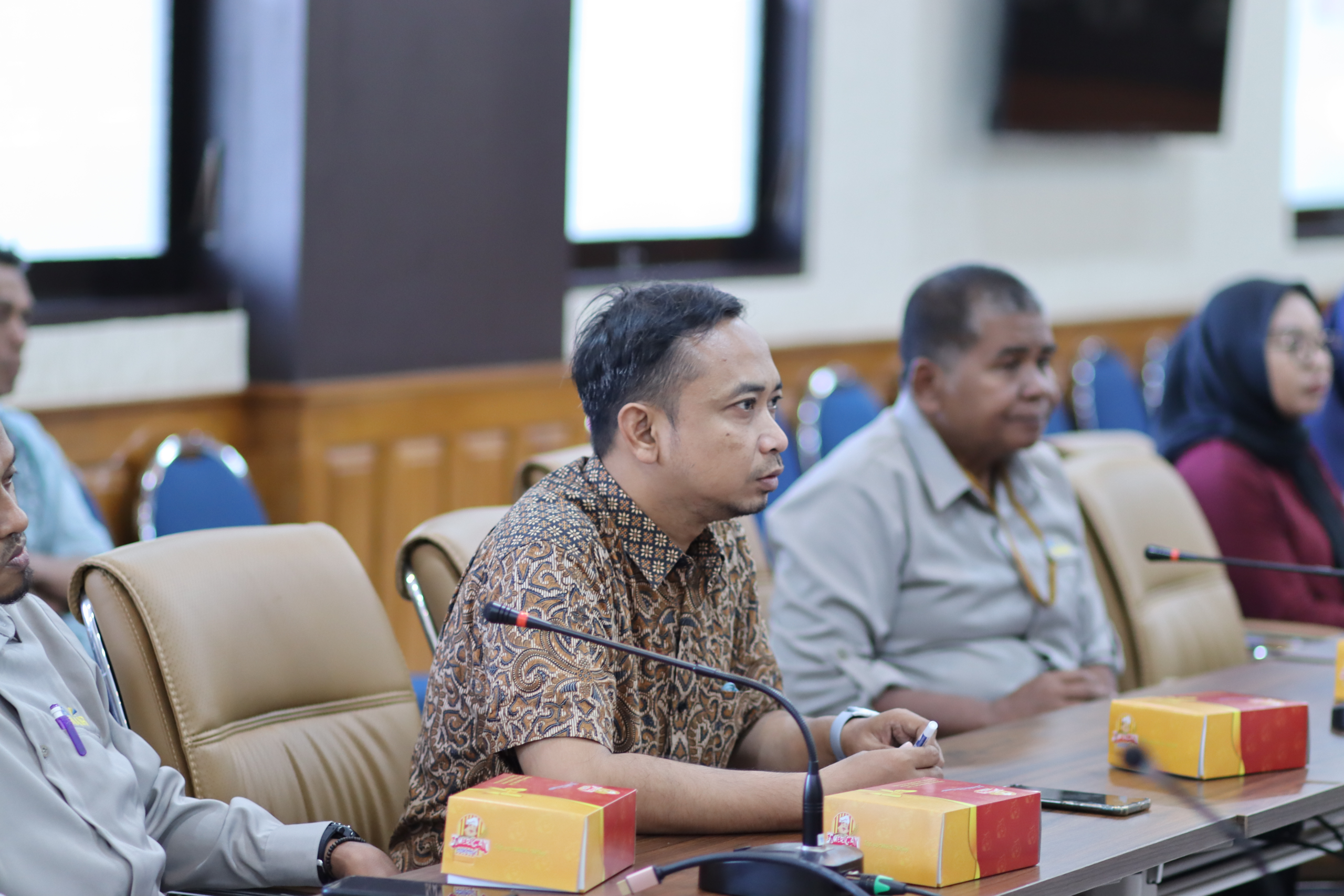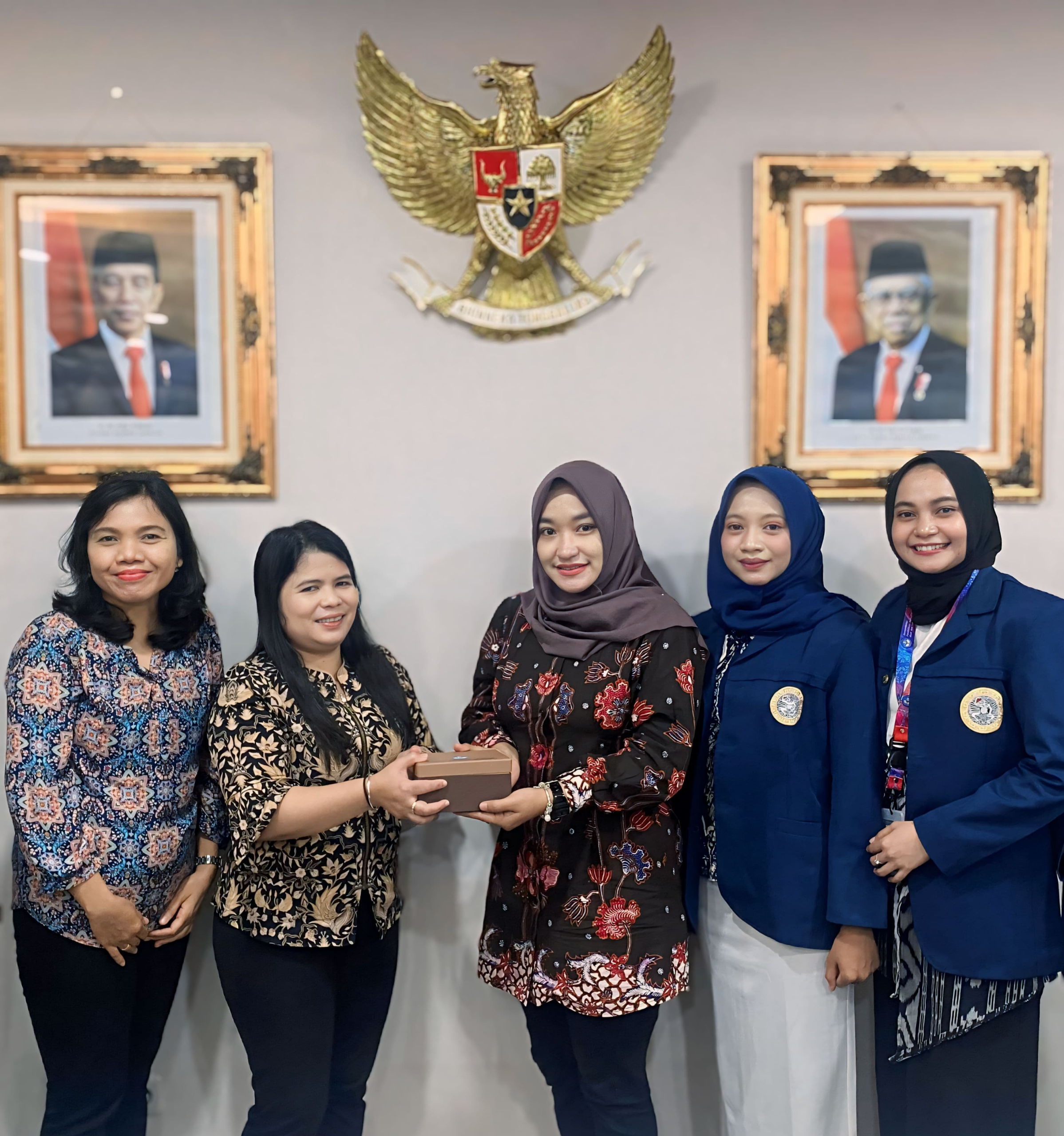Moch Ali SS MA will speak about “Coastal and Pesantren Literature” at the ILEN Talkshow on Friday (22/9/2023).
Journalist: Aidatul Fitriyah | Editor : Ilma Arrafi Nafi’a
To support the quality of education in the international scope, the Student Executive Board Faculty of Humanity (BEM), Faculty of Humanities (FIB) Universitas Airlangga (UNAIR), in collaboration with Airlangga Global Engagement (AGE), held the International Literature and Extravaganza (ILEN) 2023 entitled ‘Crossing The Boundaries, Unearthing The Power of Words’.
The event was held in room 3.08 GKB UNAIR Kampus Merr-C on Friday(22/9/2023), with international and UNAIR students as participants. Moch Ali SS MA as a Faculty of Humanity, Universitas Airlangga lecturer, gave his material related to Pesantren (Islamic boarding school) and Coastal Literature. Ali is a lecturer with expertise in Indonesian Literature and Theology.
He is a lecturer at FIB UNAIR and an experienced academic specializing in Indonesian Literature and Theology. Since the beginning of the discussion, the forum has used English because the discussion participants came from abroad, such as Pakistan, Afghanistan, Egypt, and Kyrgyzstan.
Ali opened the afternoon’s material by briefly explaining the Nusantara, pesantren, and coastal literature. Coastal literature is a work produced in the context of the coastal culture of Java, especially northern Java. Meanwhile, pesantren literature is a work produced in the context of pesantren culture as its scriptorium in the archipelago.
“Both pesantren literature and coastal literature are mostly related to the writing system of texts in the archipelago,” explained Ali in fluent English. In addition, he also added that both refer to Islamic texts through the Arabic Cosmopolis.
In fact, according to him, both coastal literature and pesantren literature are reflections of the journey of language in Indonesia. “The history of coastal and pesantren literature really reflects the history of Indonesia in linguistic, interfaith, and cross-cultural studies,” he said.
Interestingly, Ali also explained that there is a difference in the word “Islam” if the letter “I” is capitalized and non-capitalized. “Islam with a capital I means Islam that is based on the book, hadith, and other sources,” Ali explained. Islam with a non-capital “i” explains Islam historically or the history of the translation of Islam in the context of ethnic groups in Southeast Asia.
“So, you should know that Islam based on culture in Java is different from Islam in Morocco, Afghanistan, and other countries,” he explained.
This activity also supports SDGs points 4 Quality Education and points 17 partnership for the goals.
source
https://unair.ac.id




